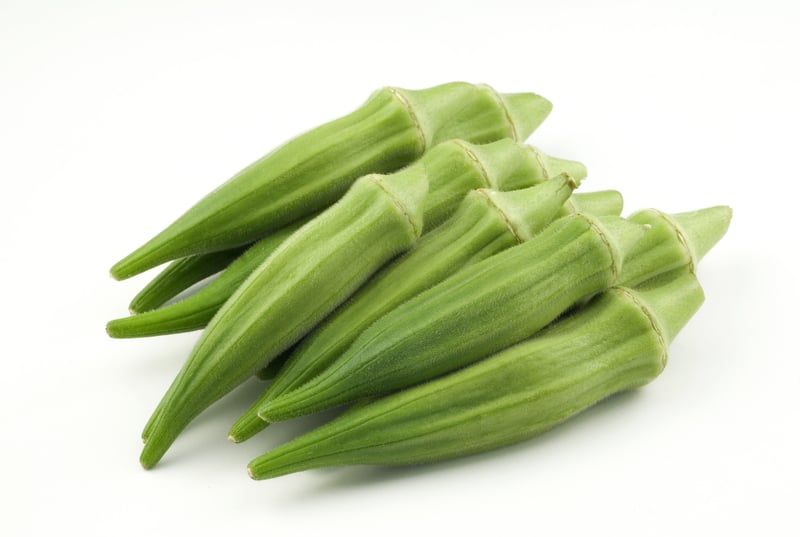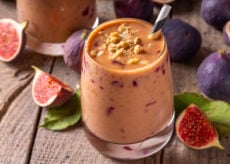Top 15+ Non-Dairy Calcium-Rich Foods

“Milk. It does a body good,” at least according to the massive milk marketing campaign of the ‘80s and ‘90s. One of the biggest benefits is that it’s a readily available source of calcium to help you build strong, healthy bones and teeth. But what if you avoid milk or dairy-based foods because they don’t agree with your digestive system (e.g., lactose intolerant) or you prefer to follow a plant-based diet? What are the top non-dairy calcium-rich foods to do your body good?
Why is Calcium Essential?
Ensuring you get enough calcium through your diet is essential as it’s needed for:
- Bone Health: 99% of the calcium in your body is stored in the bones and teeth. For those who are still growing, the body is in a constant process of rebuilding and strengthening bones, and it needs calcium to get the job done.
- Heart Health: Calcium is required to keep the heart pumping as well as for maintaining healthy blood vessels and regulating blood pressure.
- Nerve Signaling: Calcium is also needed to allow cells to fire and direct muscle contractions.
- Disease Prevention: Low calcium intakes have been linked to increased risk for some diseases, including colorectal and breast cancer in some research, as well as osteoporosis. Osteoporosis is a disease of the bones that increases the risk for breaks, decreases mobility, and can lead to injuries and increased healthcare costs.
Calcium is the most abundant mineral in our bodies, so to keep functioning optimally, we require a diet that’s rich in calcium. Women under 50 and men under 71, for example, need 1,000 mg per day; women over 50 and men over 71 need more—1,200 mg per day—to help protect bones and save off osteoporosis.
Yet an estimated 42% of Americans aren’t getting enough calcium according to the USDA. Unfortunately, deficiency symptoms aren’t always obvious until the deficiency is severe. Once symptoms become noticeable, they can include fatigue, numbness in the fingers, muscle cramps, abnormal heart rhythms, and osteoporosis. That’s why it’s important to seek out foods that are quality sources of the vital mineral every day.
Top Non-Dairy Calcium-Rich Foods
Milk, cheese, and yogurt are among the best sources of calcium, but they are not the only sources. Here are 15 top non-dairy calcium-rich foods:
1. Tofu, depending on the variety, can provide between 275 and 861 mg in a half-cup serving. That’s a healthy amount even for tofu in the lower range.
2. Dried figs are a delicious sweet treat with 241 mg per cup (about 8 figs).
3. White/navy beans are another excellent source of calcium with 126 mg per cup, and kidney beans provide 263 mg per cup.
4. Chia seeds provide 179 mg in just 2 tablespoons. Other seeds that offer a good amount of calcium are poppy (126 mg per tablespoon), sunflower (36 mg per cup in shell), and celery (35 mg per teaspoon).
5. The ancient grain (or is that seed… or something in-between?) amaranth provides 116 mg per cup.
6. A single tablespoon of blackstrap molasses provides 100 mg of calcium. It’s also a good source of iron and other vitamins, so it’s one sweet that’s rich in nutrients.
7. Leafy greens are another good source of calcium. Broccoli rabe, for example, provides 100 mg per cup; broccoli provides 87 mg per cup; kale has about 53 mg per cup raw; mustard and collard greens come in at 84 mg per cup each; turnup greens provide 80 mg per cup; bok choy provides 74 mg per cup; and a cup of arugula provides 32 mg of calcium with only 5 calories.
8. Almonds contain 96 mg per quarter cup.
9. Edamame also provides a good amount of calcium: 98 mg per cup of prepared soybeans.
10. Add 1 tablespoon sesame seeds to a meal for an added 88 mg of calcium.
11. A cup of butternut squash provides 84 mg of calcium.
12. A cup of raw okra provides 82 mg.
13. Some fruits also provide calcium, including oranges, which offer 74 mg per orange.
14. Seaweed provides an abundance of minerals, including 73 mg of calcium per cup. Kelp, a type of sea vegetable found in some Asian dishes, can provide 134 mg per cup.
15. One large sweet potato provides 68 mg of calcium.
If you are only avoiding dairy and not also avoiding seafood, some of the best sources of calcium include canned salmon with bones, which provides 212 mg per 3-ounce serving, or canned sardines, which provide an impressive 351 mg per 3.75-ounce can. Clams also provide a respectable amount of calcium at 78 mg per 3 ounces.
Top Calcium-Rich Foods: A Recap
Calcium is an essential mineral needed for us to live well. Fortunately, it’s also available in several common and not-so-common foods. Aim to eat at least two servings of calcium-rich foods each day (and preferably three) to ensure you get enough.
In addition to calcium, however, you’ll also want to ensure you’re getting enough vitamin D, as this vitamin is needed to help the body absorb calcium. Foods that are rich in vitamin D include salmon, tuna, eggs, and mushrooms, but perhaps the easiest way to get enough vitamin D in the summer is to just ensure you spend time in the sun (just not enough to get burned).




 7 Signs Your Body is Seriously Low on Collagen (not just wrinkles)
7 Signs Your Body is Seriously Low on Collagen (not just wrinkles) Health Expert: "Turmeric Doesn't Work (unless...)"
Health Expert: "Turmeric Doesn't Work (unless...)" 3 Warning Signs Your Probiotic Supplement is a Total Waste
3 Warning Signs Your Probiotic Supplement is a Total Waste

